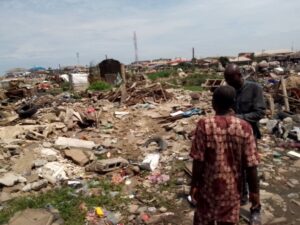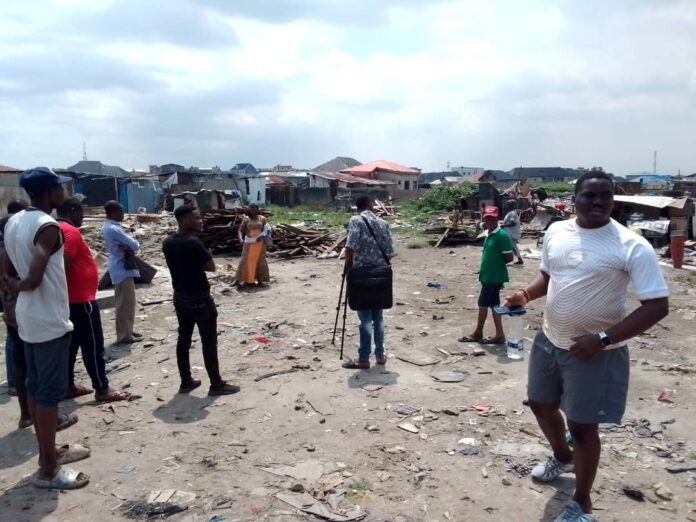In a sudden turn of events, piles of wreckage became the only remnants of what used to be homes to over 7,000 people, women, and children. Places of worship, churches, mosques, including schools, and businesses were not spared.
After the state government unexpectedly carried out repeated building demolitions in June without prior notice, the residents of Mosafejo-Oworonshoki, a low-income residential community, were forcibly displaced and left to endure immense hardship.
Oworonshoki, located in the Kosofe region of Lagos in southwest Nigeria, predominantly consists of low-income residential properties and is home to over 170,000 people.
Over the past two decades, the Lagos government has torn down various shanties located near the lagoon in order to make space for the rich to construct lavish residences. Low-income communities in Otodogbame, Ilubirin, and Makoko had been earlier victims. However, poor residents of Mosafejo-Oworonshoki became the newest victims of the prevalent forced evictions in Lagos.
Worthy of note is that the affected communities neither received warnings nor prior notice from any government ministry pre-informing them of a possible demolition or that their houses were erected on illegal sites. Many of these people had been residing in these communities for more than four decades.
Since the unfortunate incident occurred, many residents have been forced to live in open shelters and makeshift accommodations, leaving them at the mercy of dangerous animals, harsh weather conditions, and death. No less than five infant deaths have been recorded. Women and girls forced to live under these abject conditions do so at the risk of physical attacks, abuse, and rape.

Needless to say, the provision of security, welfare, and shelter is integral to the fundamental aims and objectives of government. For many years now, the Lagos State government has failed woefully to meet these objectives.
According to a report by Business Day newspaper, Lagos accounts for about 5 million out of a total of 18 million housing deficits in Nigeria. This implies that the so-called commercial center of the country accounts for more than 31% of the total housing deficit in the country. Rather than increasing the already embarrassing statistics of homelessness in the state through thoughtless demolitions, the state should be massively investing in low-cost housing projects.
Unfortunately, the regime is deliberately throwing more than seven thousand of its citizens to the street at a time the country is grappling with an unprecedented level of hardship occasioned by the astronomical increase in the price of energy, including fuel and gas.
The inflation rate is at over 27%, and the cost of food and commodities has increased astronomically, with a wave of fee hikes hitting our various tertiary institutions, forcing thousands of young people out of school. These challenges in themselves are more than bad, as they have forced millions of Nigerians out of social existence; forcing them out of their houses into the streets should not be the priority of the government.
Notably, the affected communities and civil society organizations have organized campaigns and protest actions, calling on the Babajide Sanwoolu-led government to put an end to the ongoing demolition exercise and award compensations, including resettlement of the thousands that have been unjustly displaced, made homeless, and without property. This sharp reaction from the people is apt and must be widely supported by people of good conscience.
We refuse to be the lamb that is sacrificed on the altar of the insatiable greed of an elite minority.

